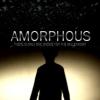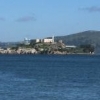A few questions, since the thread has been going for so long:
1. Is there any new Dihexa-research coming out soon? Any new studies?
2. Does anyone else think Dihexa holds potential for the treatment of SCHIZOPHRENIA?
I will elaborate on the above: a recent study, using genetic and fMRI -scans found clear evidence of overly aggressive synaptic pruning as a component of the progression of Schizophrenia, perhaps the KEY-component even...!
Now, there is talk about developing new compounds which inhibit the processes which prune synapses, but this will take a long, long time... Meanwhile, there IS a compound which increases synaptic formation...! Wouldn't it then be possible to SUPER-CHARGE a schizophrenic, turning this DISEASE of theirs, into a potential STRENGTH? With Dihexa keeping apace with their synaptic pruning, creating new synapses FASTER than their own body can discard them, wouldn't this turn into an ULTRA-NOOTROPIC for anyone schizophrenic?
I'd definitely like to know what people think about this! = ) So far, whenever I mention it, noone ever actually seems to either care or they just don't think it would have any effect.
That's a great idea to use Dihexa as a means to slow the progression of synaptic pruning in the prefrontal cortex. I think the main reason why people aren't hopping on board with this idea is the lack of evidence that Dihexa can impact the prefrontal cortex. There are images showing its effects on the Hippocampus, and there was somebody on Reddit that has worked by Dr. Harding saying that the compound can drastically affect other areas of the brain. From my limited knowledge of neuroscience, HGF, as it is used by Dihexa, should be able to positively affect the prefrontal cortex in a similar manner.
I know that Cerebrolysin has studies demonstrating positive effects on dendrites in the prefrontal cortex, so maybe something like P21 would work too https://www.ncbi.nlm...pubmed/21544867. Magnesium threonate also displays positive effects on the prefrontal cortex with signalling and BDNF increase, but definitely not to the extent that Dihexa might be able to.
Raloxifene has demonstrated neurogenesis in forebrain regions of animal models and an increase in memory and attention/processing speed using the same principles that you had in mind for Dihexa.
https://www.ncbi.nlm...pubmed/27193386
https://www.ncbi.nlm...pubmed/25980345
Yay! Recognition! And some interesting stuff here, to boot! ^^
Interesting, I was unaware of the recorded selectivity of Dihexa - although it does seem to affect other regions of the brain as well, the lack of clear evidence for effect on the PFC is somewhat disheartening - although the potential does still seem to be there.
Magnesium-L-Threonate has shown effects on synaptic growth, but it's also a mild NMDA-antagonist, and I am quite vary of using such a substance on Schizophrenics - you're probably aware of the NMDA-hypothesis of Schizophrenia, and the evidence thereof (such as markedly high levels of kynurenic acid compared to controls, which would also account for the increased dopaminergic activity) - there's also been reports of Depersonalisation and Derealisation as a side-effect from high-dose MagLT, and because of the similarities between DP/DR and psychosis, this makes me even more vary.
RALOXIFENE is quite the find though! Interesting that a SERM, of all things, could have such effects! I guess this does give more credence to the idea of hormonal imbalances in schizophrenia. I'm not so sure Raloxifene is quite the right compound though, but rather some new derivation thereof, a new type of SERM with selectivity towards neural tissue could be quite something. (hmm... could SARM's have similar properties? I know one of them have shown activity in the brain, but the impact seems to be low)
Right, Dihexa still seems to be the best bet for the moment, mainly because it's so UNBELIEVABLY strong! And the synaptic pruning in full-blown Schizophrenia seems pretty intense, with big white-matter abnormalities compared to controls - we need some STRONG stuff to combat that!
I'm thinking a trial needs to be done with placebo, adjunctive atypical antipsychotic (I'm thinking Brexpiprazol) and with Dihexa only - we need to know if this stuff would cause psychosis, because so many other antidepressants can - fellow neurogenic NSI-189 certainly seems to be a pretty big culprit here.
(there are multiple accounts from diagnosed bipolar-patients saying it caused nearly INSTANT mania, and many neurotypicals have reported hypomanic behaviour on it, as well as aggressive behaviour - no schizo-reports yet, to my knowledge, but if the latest theory on NSI's mode of effect, then it could have D2-D3-agonist properties, so I suppose that could explain it as well)
EDIT:
I almost forgot - but LITHIUM seems to have powerful neurogenic effects! And neurogenesis in the PFC have been recorded as well! But strangely enough, as far as I know, Lithium is no longer considered helpful for Schizophrenia, and isn't a first-line treatment.
I wonder why that is...? What's the data on Lithium and Schizophrenia? It should of course be noted that Lithium does a HELL of a lot of different things, so that would diffuse the data quite a bit - perhaps synaptogenesis and neurogenesis shouldn't be considered the same as well... as far as I know, enhanced learning is NOT recorded while on Lithium - quite the opposite I believe!
Maybe the ineffectiveness of Lithium comes from missing the boat on cognition as well - maybe it, and in extension Dihexa as well, would not help with Positive symptoms, but only with the negative symptoms. Well, that wouldn't matter too much! We've already got medications for those symptoms, but the meds for negatives are few and with limited effect.
Edited by Stinkorninjor, 20 February 2017 - 09:16 AM.

























































